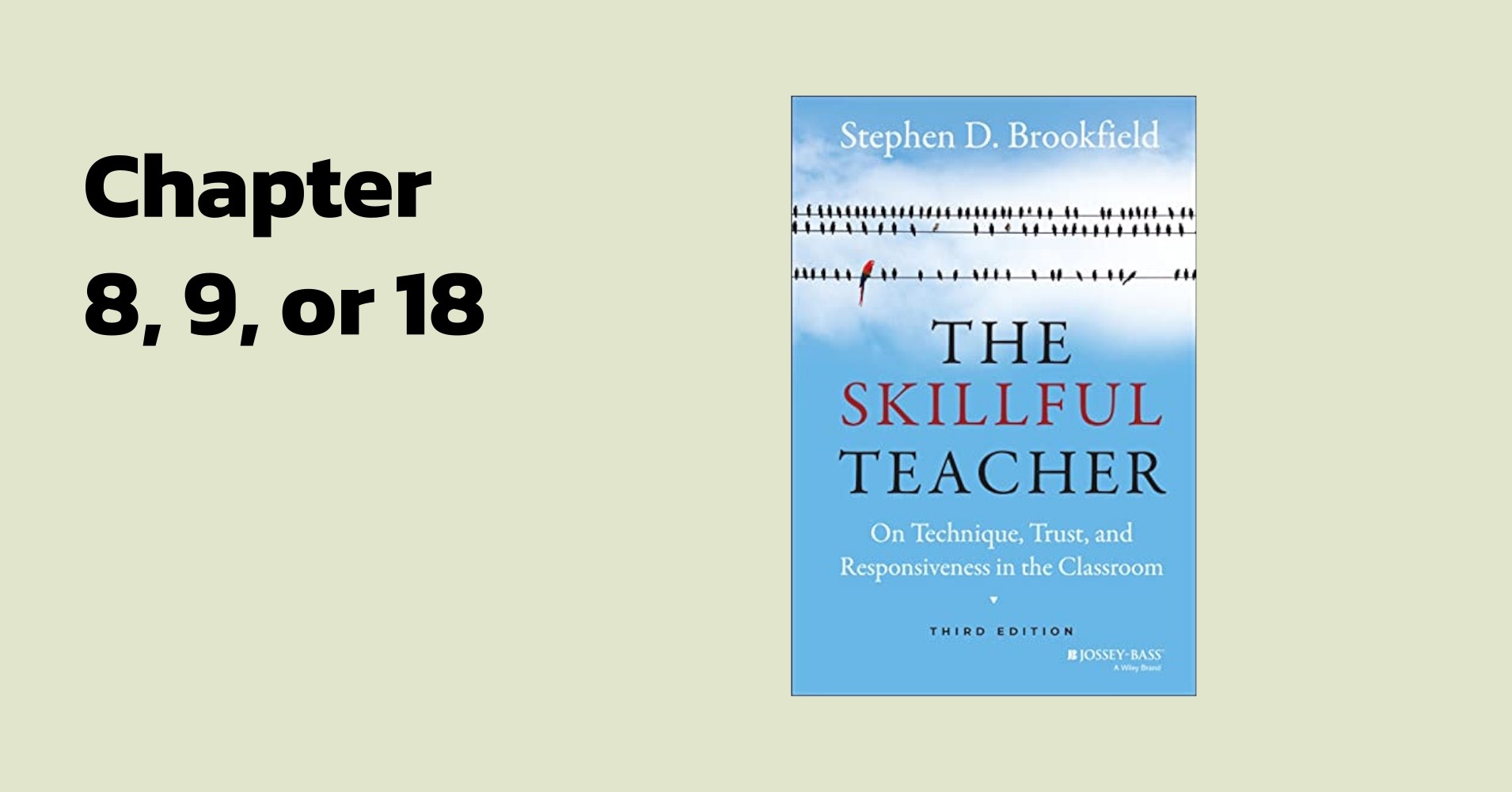Chapter 18 Exercising Teacher Power Responsibly
Brookfield Chapters 8, 9, or 18 Review

Chapter 18 ‘Exercising Teacher Power Responsibly’ speaks to the elephant in the room: who is charge and what power they hold.
Stephen addresses teaching from the perspective of ’teacher power’, which he describes as the power to influence or create the curriculum, decide what constitutes ‘good’, ’excellent’, and ‘poor’ performance, and punish and reward students in front of their peers with grades and disapproval.
Here are some of the headings from the chapter:
- Ubiquity of power
- What do students view as a justifiable exercise of power and authority
- Transparency
- Responsiveness
- Consistently fair
- When power and pedagogy collide
- Ethical coercion
Here are some of Stephen’s views on ‘Teacher Power’
- Discusses the concept of “Powertopia,” where the teacher and student have a more equal relationship, but notes that this doesn’t work as well as being open about one’s powers.
- Acknowledges that students often distrust teachers due to concerns about biased use of power.
- Explores the power of influencing students’ values, behaviors, and even political positions.
- Cites Ian Baptiste’s argument that teachers cannot avoid imposing their preferences and agendas on learners and should do so in certain instances.
I found the section Ian Baptiste’s views particularly interesting.
“In Baptiste’s view it is naive for teachers to insist that their job is not to take sides, not to force an agenda on learners. […] One of the most cententious apsects of Baptiste’s writings is his insistance on the morality of coercion. He believes not only that teachers can’t avoid imposing their preferences and agendas on learners, but also that in certain instances they must do this.”
(Brookfield, 2015, P. 247)
While I encourage getting a more robust perspective on Ian Baptiste’s writings, here’s what I interpreted from scanning the text:
Ian Baptiste argues that teachers cannot avoid imposing their preferences and agendas on learners. He believes that, in certain instances, teachers should impose their values and agendas on learners. He sees the classroom as a place where teachers can shape students’ values, behaviors, and even political positions.
Personally, I disagrees with Ian Baptiste’s argument. While I believe student’s values and perspectives should be influenced in some classroom, my view is that those beliefs, and the knowledge that they are going to be taught should be advertised on the name of the class, so that students (and their parents) can be aware of what exactly they are getting into.
Much of that awareness in western society comes at the instituational level. Student’s are meant to be aware of the direction the school leans in from the social reputation of the school and the kind of people that go there, but in certain more centric public schools, like community colleges labelling what’s on the box on a course by course basis seems responsible.
My own ‘ideal’ classroom is ‘dojo-like’, in that there is an emphasis on subject matter mastery and a ’leave your views and problems at the door’ kind of mentality. I’d hope this kind of respect for excellence in the subject matter as a kind of value on its own would encourage students to feel safe from influence on what their social views ‘should’ be, or are.
I’d aim as a teacher also, to emphasize the transparency in the exercise of power. If I had to resort to the use of grades as a ‘stick’ to get student’s to behave in the classroom, or focus on their work, I’d be up front about that.
In short, students should know why they’re being graded in a certain way and what’s expected of them, with no surprises or biases. Transparency in the use of power would help to build trust and credibility in the classroom.
